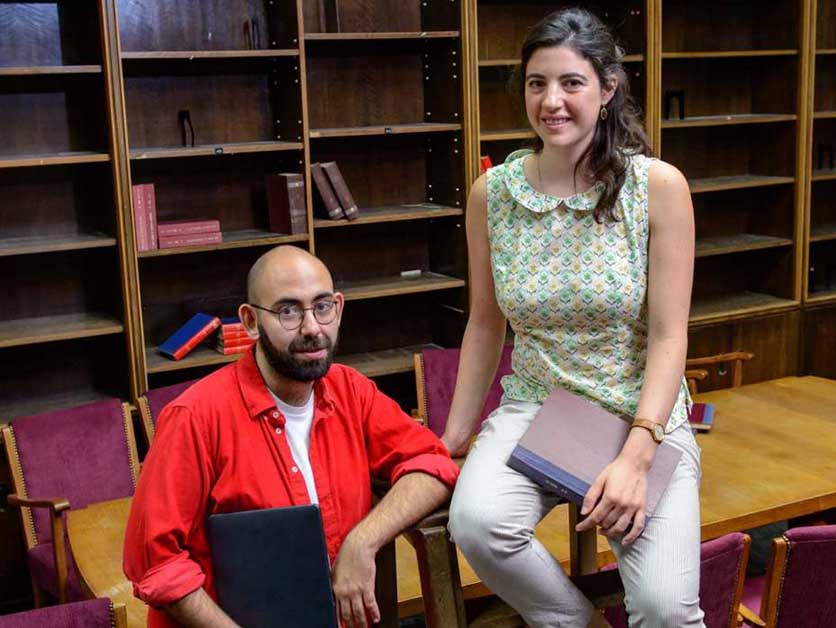Are you a journalist? Please sign up here for our press releases
Subscribe to our monthly newsletter:
In the span of two decades, Wikipedia has gone from being a controversial internet phenomenon to the world’s fifth most popular website – arguably the leading online source for knowledge today. As people's trust in the information they read on Wikipedia grows, it is important to understand to what extent the facts offered on the website are based on academic and scientific research.
Rona Aviram, a research student in lab of Prof. Gad Asher of the Biomolecular Sciences Department at the Weizmann Institute of Science, and Omer Benjakob, a journalist and student of philosophy and the history of science at Tel Aviv University, thought that Wikipedia, in and of itself a sort of uber-interdisciplinary format, could be an interesting subject for multidisciplinary research into how scientific information is understood and spread.

Wikipedia‘s open format allows its articles to be written collectively by people from across the world with varying degrees of expertise, generating an encyclopedia that is essentially a “free market of ideas.” As every change made to an article on Wikipedia is logged in a freely accessible database, Aviram and Benjakob were able to treat Wikipedia as a historical source for study. But it is an archive that evolves on a nearly daily basis.
They turned to articles on circadian clocks – the research focus in Asher’s lab. Tracking all of the different edits made to a small group of articles enabled them to trace the unfolding story of the scientific field of circadian clocks – as told to Wikipedia. The periodic addition of footnotes and citations, for example, showed how certain discoveries from scientific literature made their way into the encyclopedia’s pages, and how these changed in significance as new discoveries and ideas entered the field.
A new type of editor was present – “citizen encyclopedists” – lay experts with personal knowledge of the topic but no qualified scientific training
Wikipedia’s open format, which allows anyone to edit its content, did leave the articles exposed to vandalism, as one would expect. But Aviram and Benjakob found that the “mob-review” – a decentralized review system of sorts – served to keep the articles up to date with scientific progress while also weeding out errors. This process echoed that of the peer-review prevalent academic culture, but by removing the threshold for participation, it expands the pool of potential reviewers.
Using some journalistic know-how to uncover the identity of these reviewers revealed something surprising: In addition to scientists and young academics, a new type of editor was present – “citizen encyclopedists” – lay experts with personal knowledge of the topic but no qualified scientific training. For example, the most prominent editor of the circadian clocks articles had the user name Hordaland, who they discovered to be Beth MacDonald. MacDonald suffered from a sleeping disorder and as a result educated herself in the academic literature pertaining to her illness. Despite having no background in science, she communicated with doctors and professionals to keep up to date with circadian clock-related research. Meticulously editing, rewriting and keeping a watchful eye over the relevant Wikipedia articles, MacDonald’s case shows how Wikipedia opens up the process of communicating science to new types of agents who have historically been excluded.
Combining approaches from biology, history and journalism could help current efforts to deal with what the UN termed the “infodemic” of information on COVID-19. At the outset the coronavirus pandemic, Wikipedia broke traffic records, and the new study supports the idea that this site is better equipped than many to fight misinformation by supplying the public with up-to-date and reliable knowledge, as well as serving as a gateway to academic and scientific publications. Currently, Aviram and Benjakob are collaborating with a data scientist, Dr. Jonathan Sobel, to incorporate computational methods into a new study and to investigate on a larger scale how knowledge, for example, that about COVID-19, is diffused through the online encyclopedia.
Prof. Gad Asher's research is supported by Susan and Michael Stern; and the European Research Council.